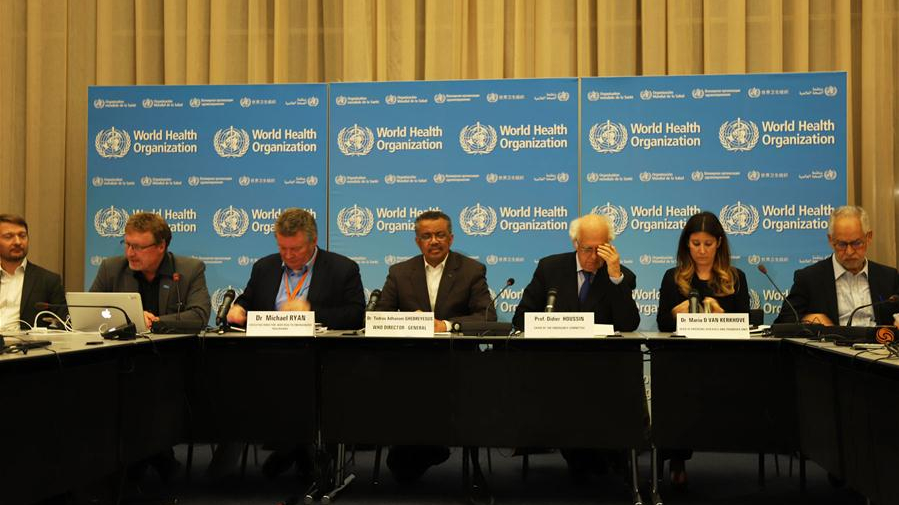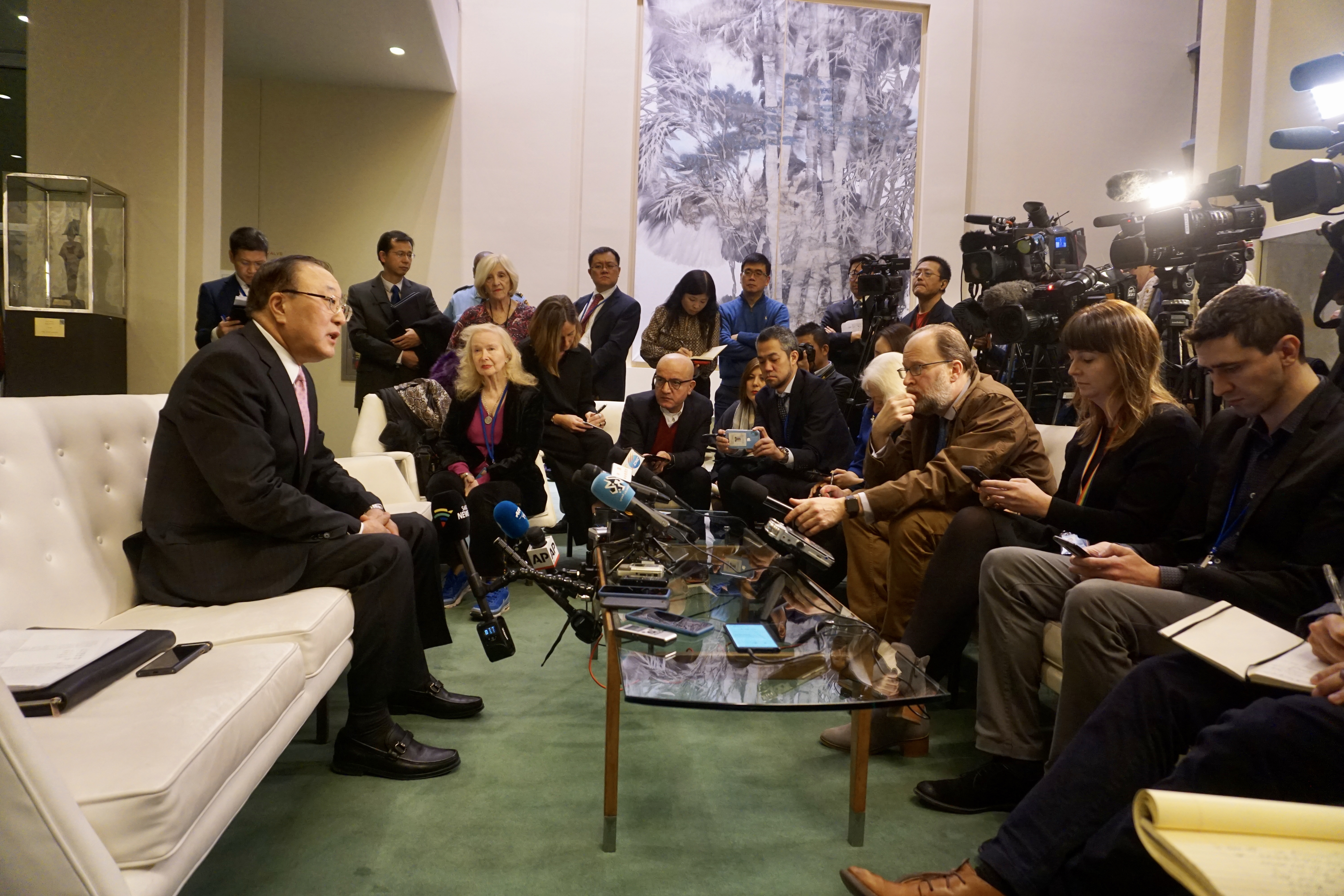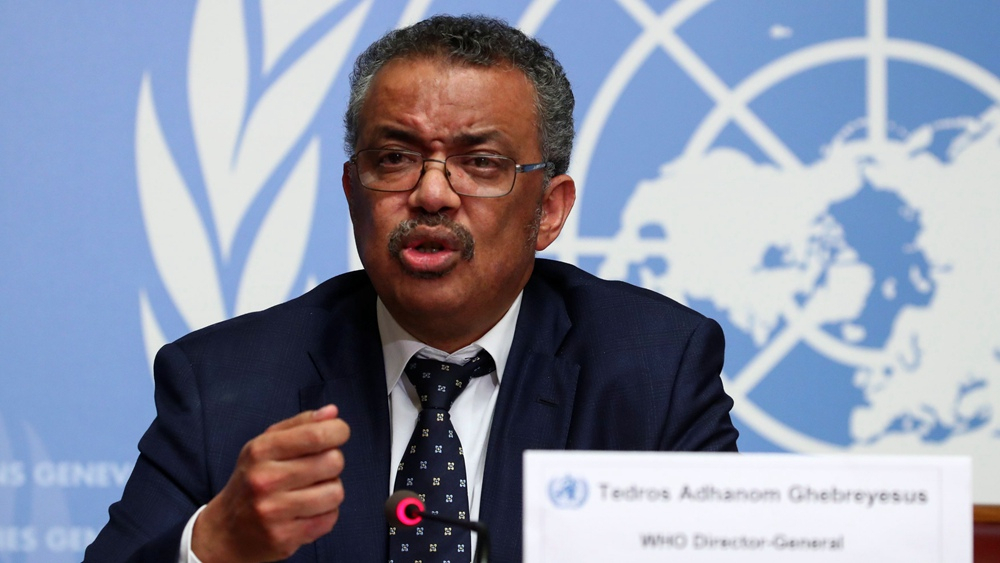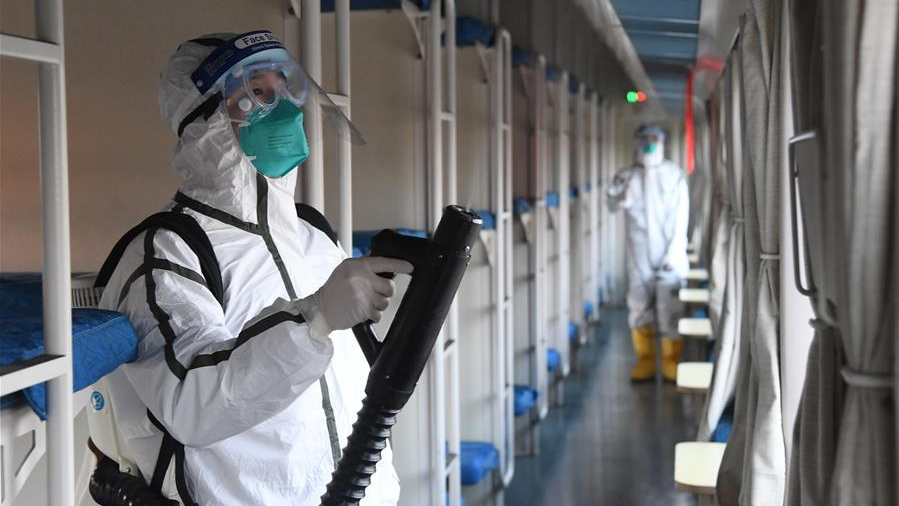02:23

China has called for united efforts in tackling the novel coronavirus outbreak to prevent the epidemic from spreading further, China's Permanent Representative to the United Nations Zhang Jun said Friday.
The remarks come hours after World Health Organization (WHO) Director-General Tedros Adhanom Ghebreyesus announced that the outbreak of the novel coronavirus, designated 2019-nCoV, has become a Public Health Emergency of International Concern (PHEIC), in other words, a global health emergency.
Most pressing task
Zhang stressed that fighting the outbreak is the most important and pressing task for the Chinese government and noted that China always has an open, transparent and responsible attitude toward international cooperation on epidemic prevention.
He called for consolidated efforts from the international community amid the outbreak, reiterating Ghebreyesus' statement highlighting the necessity to enhance the response for countries with fragile health systems, as this was the main reason behind the PHEIC declaration.
The WHO has full confidence in China's capability to combat the virus, the ambassador said, citing Ghebreyesus' remarks, emphasizing that there is no reason to impose unnecessary restrictions on international travel and trade.
Acknowledging the outbreak in China, Zhang urged all countries to make joint efforts in tackling the situation with a responsible attitude to prevent further impact as a result of overreaction amid misinformation and rumors.

China's Permanent Representative to the United Nations Zhang Jun (L) talks to reporters at the UN headquarters in New York, January 30, 2020. /CGTN Photo
China's Permanent Representative to the United Nations Zhang Jun (L) talks to reporters at the UN headquarters in New York, January 30, 2020. /CGTN Photo
WHO: China setting a new standard for outbreak response
Speaking at a press conference after a closed-door meeting of the emergency committee, Ghebreyesus stressed that the WHO discourages or even opposes restrictions of travel and trade.
"The Committee does not recommend any travel or trade restriction based on the current information available," a statement published after the emergency committee meeting said Thursday.
"Countries must inform the WHO about any travel measures taken, as required by the International Health Regulations (IHR). Countries are cautioned against actions that promote stigma or discrimination, in line with the principles of Article 3 of the IHR," the statement added.
The committee asked the director-general to provide further advice on these matters and, if necessary, make new case-by-case recommendations, in view of this rapidly evolving situation.
00:58

Under the IHR, the WHO director-general has the authority to determine whether an outbreak constitutes a PHEIC. The designation is aimed at mobilizing more international resources to deal with the epidemic. Since the IHR entered into force in 2007, the WHO has made multiple PHEIC declarations.
Ghebreyesus noted that Chinese President Xi Jinping personally commands and deploys the prevention and containment efforts.
"The speed with which China detected the outbreak, isolated the virus, sequenced the genome and shared it with WHO and the world are very impressive and beyond words. So, is China's commitment to transparency and to supporting other countries," Ghebreyesus said.
"In many ways, China is actually setting a new standard for outbreak response," he added.
That reflects not only China's high sense of responsibility for the lives and health of its people but also its strong support for global disease prevention and control, he said.
Read more:
WHO chief confident in China's epidemic prevention and control ability
China keeps close communication with WHO on coronavirus outbreak
Chinese government confident of controlling, defeating the epidemic

Disinfection work is conducted on a train in China, January 30, 2020. /Xinhua Photo
Disinfection work is conducted on a train in China, January 30, 2020. /Xinhua Photo
Ghebreyesus said he believes China will effectively contain and eventually defeat the epidemic, adding that China's efforts to combat the disease deserve respect and appreciation and are worth learning from.
Now, the situation is still developing, and more research is needed; particularly, countries with fragile health systems should enhance their responses, the WHO chief said.
That is the main reason behind the PHEIC declaration, he said, adding that considering global health security, it is also a necessary step to achieve a scientific, rational and calm response based on evidence, and to help other countries take scientific, reasonable and appropriate measures to prevent the epidemic.
China: Confident in winning the battle against the epidemic
Wu Zunyou, the chief epidemiologist of the Chinese Center for Disease Control and Prevention, said the PHEIC declaration is a standard practice of the WHO.
"China's current prevention and control measures are the strictest and very effective. We are confident that we can effectively contain the epidemic and finally overcome it," Wu said.
Chinese Foreign Ministry spokesperson Hua Chunying echoed Wu's remarks on Friday, stressing that many of the prevention and containment measures China has taken far exceed relevant requirements for dealing with emergencies.
China has kept close communication with the WHO and relevant countries by providing timely information and sharing the gene sequence of the novel coronavirus, said Hua.
Hua said China's efforts have been well recognized by the WHO and other countries, reiterating that the country has the confidence and capability to win the battle against the outbreak.
The Chinese government is taking resolute and forceful measures to conduct scientific and effective prevention and control of the epidemic, said the spokesperson, adding that China is ready to work with the WHO and relevant countries in safeguarding the public health in the region and worldwide.
Ghebreyesus visited China on Monday. He praised the Chinese government's timely and effective measures in fighting the novel coronavirus when meeting with President Xi Jinping and Chinese State Councilor and Foreign Minister Wang Yi, respectively.
Expert: China should treat WHO's PHEIC decision positively
"China is a big country, so we should have international responsibility and treat WHO's decision to declare the outbreak a 'public health emergency of international concern'(PHEIC) positively," said Hu Shanlian, a professor of health economics at the School of Public Health, Fudan University, who has also served as a temporary consultant for WHO and the World Bank on health system research many times.
The purpose of the decision, Hu said, is to protect countries with weaker health systems, increase awareness of the disease and encourage international collaboration on vaccine and drug development. The WHO does not advise drastic restrictions on travel and trade with China.
Hu said, according to the data, the death rate of the novel coronavirus is around two to three percent, and the ratio of confirmed cases versus suspected cases is around one to 1.5 percent, which suggests the new virus transmits more easily but is less deadly than SARS or MERS.
He also suggests that other countries adopt early detection, diagnosis, isolation and treatment, and advises the public to wear masks and avoid mass gatherings.
(With input from Xinhua. CGTN's Xu Mengqi contributed to the report.)